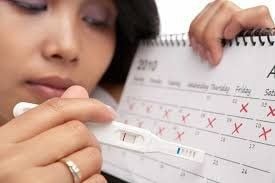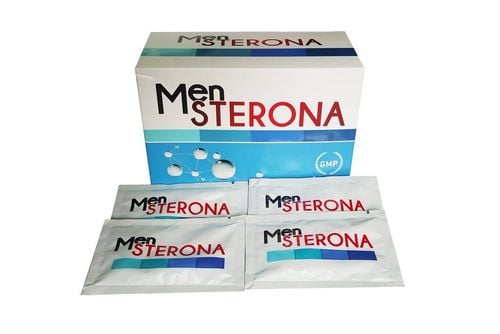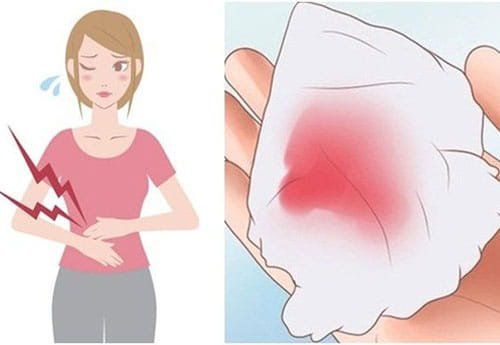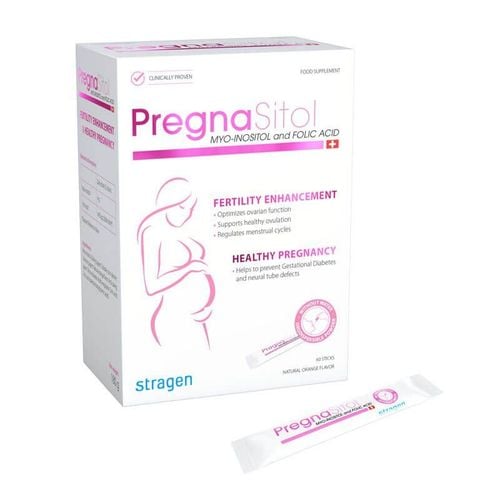This is an automatically translated article.
The article was professionally consulted by Specialist Doctor II Pham Thi Tuyet Mai - Obstetrician and Gynecologist - Department of Obstetrics and Gynecology - Vinmec Hai Phong International General Hospital.Premature ovarian failure is defined as the onset of primary hypogonadism before the age of 40 years. In fact, about 5-10% of women diagnosed with premature ovarian failure are still able to conceive spontaneously after being diagnosed with premature ovarian failure.
1. What is Premature Ovarian Failure?
Premature ovarian failure is the cessation of ovarian function in women after puberty and before the age of 40. Depending on the cause, premature ovarian failure can develop as early as puberty or it can be congenital.Premature ovarian failure can be recognized through signs such as: Irregular menstrual periods for many years, only once every few months, few menstrual periods, even no periods. Accompanied by many symptoms similar to menopause such as: hot flashes, night sweats, agitation, decreased sex drive, vaginal dryness... Urinary disorders: urinary incontinence, excessive urination. On ultrasound images of a patient with premature ovarian failure showing failure to develop small eggs, the test checks for decreased estrogen levels.
2. Causes of premature ovarian failure
Immune factors: Autoimmune diseases such as autoimmune thyroiditis can be associated with premature ovarian failure. Premature ovarian failure due to treatment: Women who have both or one of their ovaries removed can cause ovarian dysfunction, causing premature ovarian failure before the age of 40. Spontaneous ovarian failure: Sudden amenorrhea is also one of the most important causes of premature ovarian failure, often occurring in women of reproductive age. Clinical manifestations: menstrual period is less and less frequent, and symptoms of menopause appear at the same time as: irritability, irritability, vaginal dryness... Viral infections: Disease-causing viruses such as herpes simplex virus (HSV), the virus that causes mumps, can cause inflammation of the ovaries or an autoimmune disease that damages the ovaries causing premature ovarian failure. Excessive weight loss: Excessive weight loss causes the amount of fat inside the body to be reduced quickly, which affects the amount of estrogen in the body, menstrual disorders, amenorrhea, premature ovarian failure. Bad life habits such as smoking and drinking alcohol. Too much mental pressure: If a woman falls into a state of excessive stress, it can over time disrupt the autonomic nervous system, affect the endocrine regulation in the body, and reduce the function. Premature ovaries, decrease in the hormone estrogen causes menopause to come earlier.
3. The risk if premature ovarian failure is not treated
In the absence of exogenous estrogen therapy with appropriate dosage, women with ovarian failure are at risk for the following:Symptoms of estrogen deficiency, including vasomotor hot flushes, vaginal dryness, night sweats, fatigue, and mood swings, all of which may respond to estrogen treatment. Osteoporosis, which is common in young women, because these patients have ovarian dysfunction before they reach the peak of adult bone mass. Women with premature ovarian failure have a high rate of osteoporosis fractures. Impaired endothelial function, increased cardiovascular morbidity and mortality, may be related to endothelial dysfunction. Decreased sex drive. Memory impairment: Some studies have shown that women younger than 43 years of age, who have had both ovaries removed, and are not receiving estrogen replacement therapy have an increased risk of dementia and cognitive decline.
4. With premature ovarian failure, is it possible to get pregnant?
In fact, 5-10% of women diagnosed with premature ovarian failure are still able to conceive naturally. And 50% of women with premature ovarian failure still have ovarian activity (intermittent and unpredictable) years after diagnosis.
Vinmec Reproductive Center is the leading modern center in Vietnam, built and applied a comprehensive medical examination and treatment process, combining both male and female obstetrics and gynecology to offer the optimal plan. for each patient case.
In addition to advanced reproductive support methods, a team of good doctors in the country and the world, with prestige and long experience in the field of infertility have a decisive role in the success of IVF Vinmec:
Dr. Dr. To Minh Huong - Head of Clinical Reproductive Support Unit, Vinmec Times City International Hospital. With more than 30 years of experience working in the field of Assisted Reproduction. Th.S.BS Le Thi Phuong Lan - Head of Reproductive Support Unit, Lab, Vinmec Times City International General Hospital. With 30 years of experience working in the field of Assisted Reproduction. The center is equipped with a system of modern facilities and equipment, ensuring the best conditions for embryo culture such as the ISO 14644-1 international standard clean room system, Labo is designed with one-way, pressure Positive force blowing clean air and mini incubator system.
For more information, please contact Vinmec Hospitals and clinics nationwide
Please dial HOTLINE for more information or register for an appointment HERE. Download MyVinmec app to make appointments faster and to manage your bookings easily.














